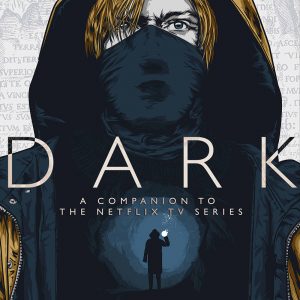
 DARK - A Companion To The Netflix TV Series
DARK - A Companion To The Netflix TV Series Enter Stage Left – Martha, Martha, Martha & Eva
Aug 5, 2021
Martha and Eva discuss their timelines and journeys into becoming Eva. The hosts analyze Martha's transformation, express disappointment with her character in season three, and discuss the symbolism and mythology in the show. They delve into Eva's plan and emotions toward the podcast ending.
Chapters
Transcript
Episode notes
1 2 3 4 5 6 7
Introduction
00:00 • 3min
Exploring Martha's Transformation and Missed Opportunities
03:06 • 19min
The Disappointment with Martha's Character and the Need for Visual Differences
22:17 • 11min
Symbolism of the serpent and apple and speculations on the unknown character
33:22 • 2min
Symbolism and Mythology in Season Three
35:00 • 5min
Eva's Plan and the Original World
40:13 • 6min
Emotional reflections on the ending and upcoming episodes
46:19 • 3min

